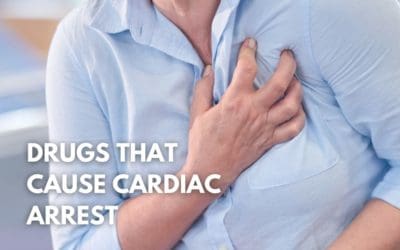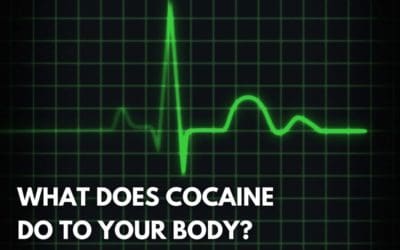Derived from the leaves of the coca plant native to South America, Cocaine has an interesting history – to say the least. Dating back to the early 1900s, a purified form of cocaine was used as the active ingredient in an array of products sold throughout the United States. The long list of products includes a timeless beverage named after this main ingredient, Coca-Cola®. In addition to being used by surgeons as a sort of anesthetic, cocaine was seen as a cure-all. It was decades before researchers were able to identify and prove that cocaine use has drastic effects on brain structure and can be a highly addictive substance.
The Freedom Center in Gaithersburg, Maryland provides cocaine addiction treatment for people suffering from an addiction to stimulant drugs.
What is Cocaine?
In the United States, cocaine is a stimulant drug classified as a Schedule II Substance meaning it has a high potential for abuse and addiction, and recreational use is illegal. However, it can be utilized by medical doctors for anesthetic purposes.
Cocaine is a drug most commonly found in the form of a white crystalline powder substance. Recreational users may consume the substance by snorting it through their nose or eating it. crack cocaine is a less pure version of cocaine found as a crystal-like rock. Crack cocaine may be smoked or crushed and consumed like powdery cocaine.
How Cocaine Affects Users
Cocaine is considered a stimulant drug because of the effects it has on those who consume it. The drug stimulates brain activity and increases physiological processes such as heart rate and breathing. The resulting effect is feeling energized, talkative, social, and even focused (although not always on what you intend to focus on). However, cocaine is a fast-acting substance whose effects begin to wear off quickly and frequent use is common in order to maintain a “cocaine high” over many hours or days.
Cocaine Addiction Withdrawal Symptoms
Some cocaine users may find themselves turning to cocaine time and time again in order to keep their energy up during work or social events. These individuals may be struggling with cocaine addiction. If used frequently over a period of time, it is also possible for dependence to develop. Those who are physically dependent on cocaine may experience withdrawal symptoms when they stop using. Cocaine withdrawal symptoms are not as physically severe as other substances, with the most common symptom being intense cravings for the drug. Other possible withdrawal symptoms include:
- Fatigue
- Lack of pleasure
- Anxiety
- Irritability
- Sleepiness
- Agitation
- Paranoia
Cocaine Addiction Signs
Similar to alcohol, cocaine is a substance that is commonly used in social settings. The social aspect of this drug’s use blurs the lines of when addiction is actually present. Any sort of cocaine abuse can be dangerous, but addiction is particularly risky. Whether it is you or a loved one that is struggling, the first step to addressing a cocaine use disorder is identifying it.
Physical signs of cocaine addiction include:
- Dilated pupils
- Runny nose
- Rapid weight loss
- Nosebleeds
- Changes in sleeping patterns
- Changes in eating patterns
- White powder residue around the nose and/or mouth
- Burn marks on the hands and lips
Psychological/Behavioral signs of cocaine addiction include:
- Unusual excitability
- Mood swings
- Social isolation
- Risky behaviors
- Boost in confidence
- Increased talkativeness
- Poor hygiene
- Financial issues
- Loss of interest in things previously enjoyed
- Increased need for privacy
- Spoons, razor blades, plastic baggies, and other drug paraphernalia in the person possession
Keep in mind that one of these factors on its own does not necessarily signify addiction, but when multiple are present they should not be ignored.
Treatment for Cocaine Addiction
Addiction treatment programs have seen it all and they provide non-judgemental support to those who need help overcoming cocaine addiction. Nearly 6% of all drug rehab program admissions in 2013 were related to cocaine abuse. Additionally, about 63% of these individuals may have been polydrug users. All drug users will likely experience some adverse effects when they discontinue drug use, also known as detox. Individuals who only struggled with cocaine may not need a medication-assisted detox program, but that 63% who mixed cocaine and alcohol or other substances may benefit from medical assistance. Following detox, clients can continue to address the psychological and behavioral aspects of cocaine addiction through an outpatient program such as a partial hospitalization program or an intensive outpatient program.
At The Freedom Center, we provide individualized addiction treatment that addresses the core issues that lead to substance abuse. We want to help you, your family, and your friends overcome the strain and stress that addiction causes. We do this through intensive individual and group therapy, as well as family support, life skills courses, and more.
Sources:

































